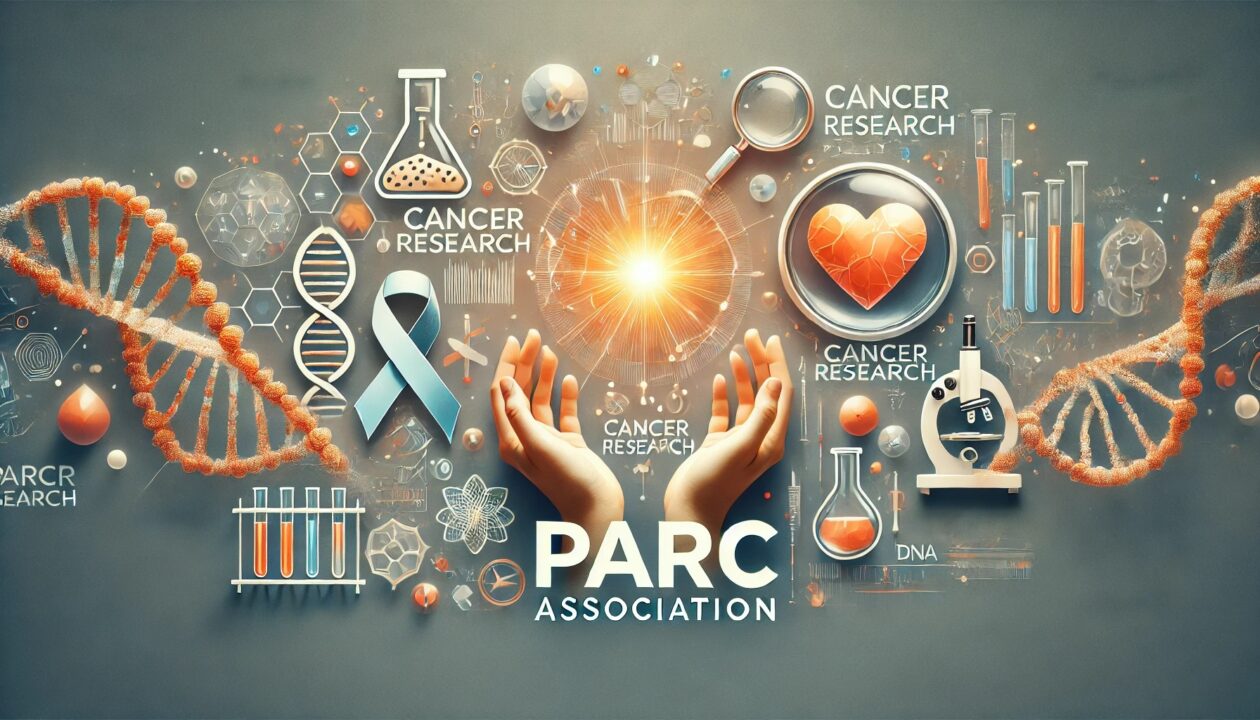Parc AssociationCancer Research
Cancer Research: Hope, Innovation, and the Importance of Everyone’s Support
Cancer remains one of the leading causes of death worldwide, and scientific research is our best hope for combating this disease.

Each year, millions of people are diagnosed with various types of cancer, and despite advances in diagnosis and treatment, there is still much work to be done. Cancer research is not only about discovering new therapies but also about prevention, early diagnosis, and improving the quality of life for those living with this disease. To achieve all this, everyone’s support is essential, and financial contributions play a critical role.
1. Why Is Cancer Research Crucial?
Cancer research is fundamental for several reasons:
- Therapy Innovation: In recent decades, science has made strides with targeted therapies, immunotherapies, and personalized treatments that reduce side effects and improve outcomes. However, research never stops: every discovery opens new questions, and new challenges must be addressed.
- Early Diagnosis: Detecting cancer in its early stages is crucial for improving treatment outcomes. Research continues to develop increasingly accurate and accessible screening techniques so that cancer can be detected before it becomes more difficult to treat.
- Prevention: Epidemiological and genetic studies are at the heart of discoveries regarding risk factors and prevention methods. Understanding the causes and behaviors that can increase the risk of cancer is the first step in reducing the incidence of the disease.
2. The Role of Non-Profit Organizations in Research
Non-profit organizations are the backbone of cancer research, especially in a context where government funding does not always cover all costs. These organizations not only fund research but also support patients and families, raise public awareness, and promote prevention. Their work is essential because:
- Continuous Funding for Research: Research projects often require years of work and significant resources to yield concrete results. Non-profits allow researchers to focus on innovative discoveries without the concern of a funding shortfall.
- Patient Support: Many organizations also fund support services for cancer patients and their families, providing psychological support, logistical assistance, and treatment consultations.
- Information and Prevention: Non-profits play a vital role in educating the public. Through awareness campaigns, conferences, and informational materials, they help people understand cancer and ways to prevent it.
3. The Importance of Donations: Why Your Support Is Crucial
Financial support is the lifeblood of cancer research. Every donation, regardless of the amount, helps fund projects aimed at improving patients’ quality of life, developing innovative treatments, and saving lives. This is why donations are essential:
- Sustainability of Research: Many major breakthroughs are the result of long-term research, which can require years of laboratory work. Without sufficient funding, researchers must pause or abandon projects, slowing progress.
- Access to Advanced Technologies: Cancer research often requires cutting-edge technology, which can be costly. Donations enable organizations to acquire state-of-the-art tools and resources, increasing the potential for significant discoveries.
- Direct Support for Patients and Families: Donations not only fund research but also make it possible to offer free or reduced-cost support services for those facing cancer.
4. How to Make a Difference with a Donation
Donating is not just a gesture of solidarity; it is an investment in a future free of cancer. Here’s how even a small contribution can make a difference:
- Monthly Donations: Recurring donations allow organizations to plan long-term projects, ensuring stable and continuous funding.
- Event Participation: Many non-profit organizations host marathons, auctions, and other fundraising events. Participating in these events allows you to contribute in a fun and engaging way.
- Bequests and Wills: A donation through a legacy gift is a way to leave a lasting mark in the fight against cancer, enabling future generations to benefit from scientific progress.
Conclusion
Cancer research is an ongoing battle, made of small and large victories. Every discovery, every therapy, every patient healed is the result of years of study and work, supported by a network of donors and supporters who believe in a future free of cancer. Your donation not only supports research but gives hope to millions of people worldwide. We are stronger together: with your contribution, we can make a difference.